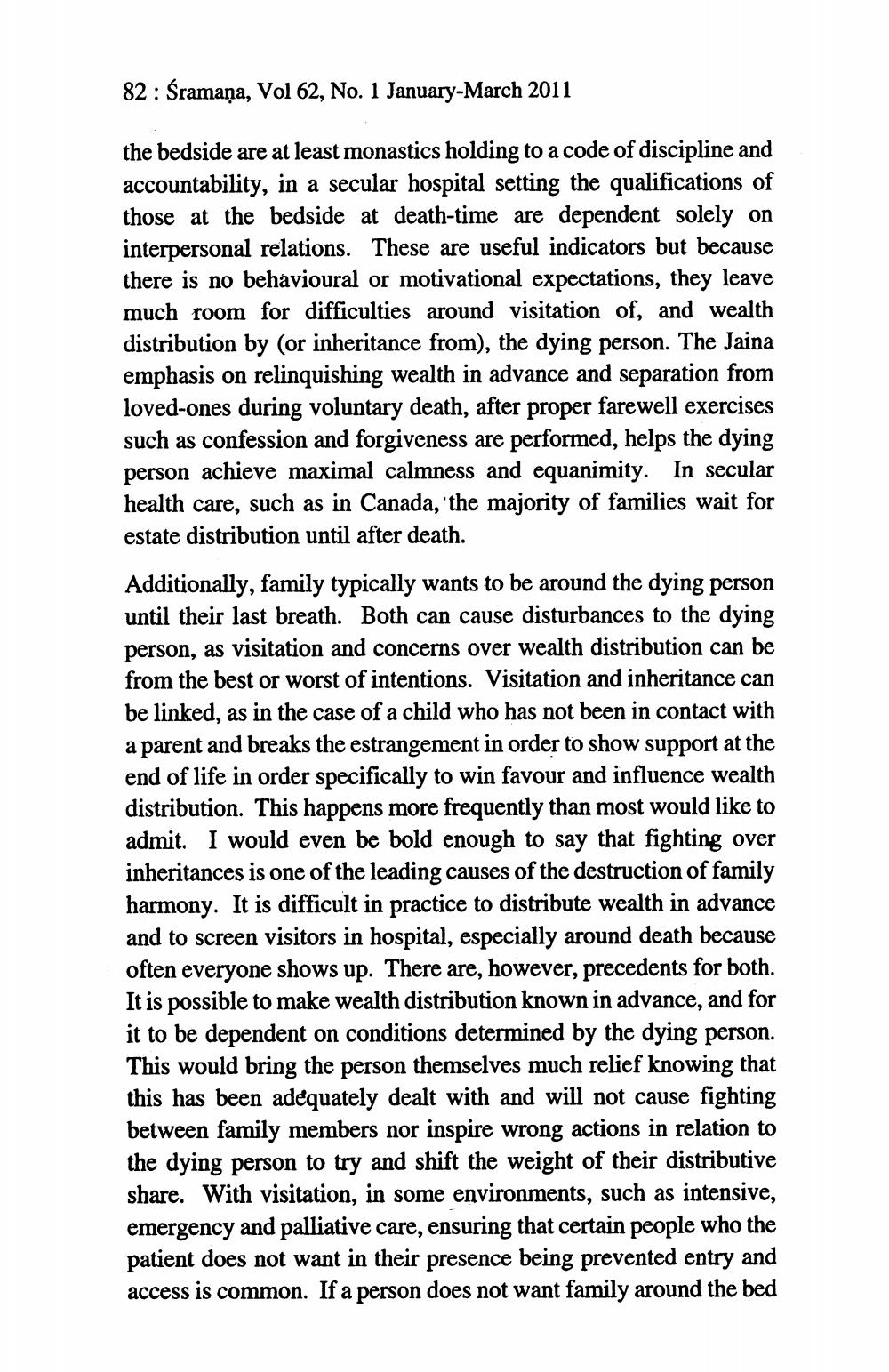________________
82 : Śramaņa, Vol 62, No. 1 January March 2011
the bedside are at least monastics holding to a code of discipline and accountability, in a secular hospital setting the qualifications of those at the bedside at death-time are dependent solely on interpersonal relations. These are useful indicators but because there is no behavioural or motivational expectations, they leave much room for difficulties around visitation of, and wealth distribution by (or inheritance from), the dying person. The Jaina emphasis on relinquishing wealth in advance and separation from loved-ones during voluntary death, after proper farewell exercises such as confession and forgiveness are performed, helps the dying person achieve maximal calmness and equanimity. In secular health care, such as in Canada, the majority of families wait for estate distribution until after death.
Additionally, family typically wants to be around the dying person until their last breath. Both can cause disturbances to the dying person, as visitation and concerns over wealth distribution can be from the best or worst of intentions. Visitation and inheritance can be linked, as in the case of a child who has not been in contact with a parent and breaks the estrangement in order to show support at the end of life in order specifically to win favour and influence wealth distribution. This happens more frequently than most would like to admit. I would even be bold enough to say that fighting over inheritances is one of the leading causes of the destruction of family harmony. It is difficult in practice to distribute wealth in advance and to screen visitors in hospital, especially around death because often everyone shows up. There are, however, precedents for both. It is possible to make wealth distribution known in advance, and for it to be dependent on conditions determined by the dying person. This would bring the person themselves much relief knowing that this has been adequately dealt with and will not cause fighting between family members nor inspire wrong actions in relation to the dying person to try and shift the weight of their distributive share. With visitation, in some environments, such as intensive, emergency and palliative care, ensuring that certain people who the patient does not want in their presence being prevented entry and access is common. If a person does not want family around the bed




